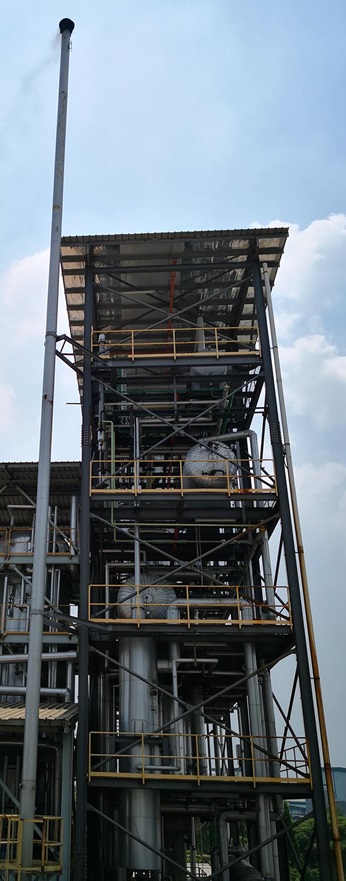Media release
Fueling biodiesel adoption – Sulzer Chemtech’s technology helps vegetable oil producer enter the biofuel market
Rising demand for bio-based fuels is opening key opportunities for businesses looking to enter the biodiesel sector. This alternative to conventional fossil fuels leads to lower emissions of carbon dioxide (CO2) and particulate matter when used.
A substantial advantage for companies interested in producing biodiesel is the broad variety of feedstock available. In effect, this fuel can be obtained by processing a wide range of resources, such as animal fats, vegetable oils or used cooking oil. Therefore, businesses can utilize the raw material that best fit their needs and capabilities or resources that are already part of their production systems.
Regardless of the chosen resource, the manufacturing process remains the same and is based on the transesterification of triglycerides in the presence of alcohol, alkaline or enzyme catalysts. As a result of this reaction, mono-alkyl fatty esters – i.e. biodiesel – are produced, together with fatty acids, particularly monoglyceride.
After the esters are formed, their purification is the next essential step in biodiesel manufacturing, as it removes impurities and reduces the concentration of monoglyceride in the end product. Systems that can achieve a high separation performance are extremely beneficial. They help producers to deliver transparent fuels with extremely low cloud and pour points that can meet even strict winter-grade specifications. These can also be mixed with conventional diesel fuels to support, among others, customers in Europe and North America.
Tapping into new opportunities
In order to further leverage its existing oil-based resources, Bremfield Sdn Bhd wanted to set up a small-scale biodiesel facility in its oil processing plant, located in Klang, Malaysia. Creating a system with limited processing capacity of 300 tonnes of biodiesel per day and the need to obtain fuels with a minimum residual concentration of monoglyceride to meet strict winter-grade specifications, were some of the main aspects that the extraction equipment within the new production line needed to account for. To develop a highly effective solution for this application, the company contacted the leading separation technology specialist, Sulzer Chemtech.
The company was able to provide a design that could process the necessary 300 tonnes of biodiesel per day with high separation and energy efficiency while offering a quick return on investment (ROI). The solution that was developed relies on a single, compact separation column, where most of the biodiesel is extracted.
Key components within the column are Sulzer Chemtech’s MellapakPlus™ structured packings to fit a high number of theoretical stages in a limited footprint, minimizing the capital expenditure while providing the vacuum conditions required for biodiesel purification and maintaining low pressure drops.
As the column needed to reach elevated temperatures (between 190°C and 220°C) to effectively separate the biofuel from various impurities, the set up was designed to maximize the energy efficiency of heating operations. In this way, the oil processor could maintain low running costs, quick ROI and ultimately cost- competitive biodiesel prices.
Sulzer Chemtech was also responsible for basic engineering, detail engineering, procurement of equipment and accessories, project management, commissioning and startup of the new unit. Thanks to the solution provided by the company the facility was completed in less than a year and Bremfield Sdn Bhd has met its capacity goal of 300 tonnes per day and high purity requirements by reaching monoglyceride levels lower than the necessary 0.2% w/w, thus supporting winter-grade specifications. The facility has been operating efficiently for over four years and the company has been able to support customers with high-quality biofuels.
Your contact
Chemtech Division
Sulzer Management Ltd
